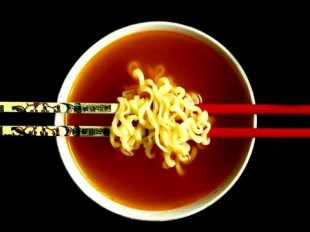Monosodium glutamate (MSG) is widely viewed as a dangerous food toxin that is responsible for adverse reactions to Chinese food and other meals. But is it really the MSG that’s to blame?
Glutamate is a naturally occurring amino acid, used chiefly in our body to make protein. Most of us normally eat around 10 grams of glutamate every day, much of which is released into the body when we eat and digest protein. Some protein-rich foods – such as meat, fish, chicken, dairy products, legumes and corn – are especially rich in glutamate.
But glutamate has another important property: it tastes good. When glutamate touches the taste receptors on our tongue, it gives food a savory taste (known as unami). Mixed with our meal, glutamate is said to balance, blend and enhance the total perception of flavor. But not just any glutamate; we can’t taste glutamate that is locked in protein. For it to tickle our taste buds, it must be in a “free form”.
Some (tasty) foods – tomato products, fermented soy/fish/oyster/steak/Worcestershire sauces and long-matured cheeses such as stilton and parmesan – are high in free glutamate. Ever wonder why parmesan makes the bolognese taste better (and more meaty)? It’s the glutamate!
Because MSG has such a bad name, many manufacturers use other sources of glutamate to give processed foods the extra taste. These include vegetable, corn, yeast or soy protein extracts, in which the glutamate has been released from the protein by enzymatic digestion or chemical hydrolysis. When dissolved in water, the free glutamate in these extracts is chemically identical to that contained in MSG and enhances flavor in precisely the same way.
Most of us would usually eat around half to one gram of free glutamate every day as additives to our food. In Asian countries, this figure is double, reflecting the use of soy and other fermented products in cooking. A highly-seasoned banquet in a Chinese restaurant may contain up to four to five grams of free glutamate.
But glutamate isn’t just found in Chinese restaurants. Many American-style fast foods contain just as much glutamate to enhance their flavor and your experience, beyond that of their competitors. Even Vegemite contains 1.4% free glutamate.
A small proportion of people experience transient symptoms when they consume large amounts of free glutamate (more than four to five grams) in a single meal. These reactions vary from person to person but may include headaches, numbness/tingling, flushing, muscle tightness and general weakness.
A number of scientific studies have tried to replicate this experience. Most have been too small, used unrealistically high doses of MSG, and were not undertaken in the context of food (or even with intravenous doses). Try eating a whole jar of Vegemite in one sitting and you will soon see why people don’t feel so well afterwards.
More rigorous studies have failed to confirm a reproducible response to meals containing MSG, even in self-attributed “MSG sensitive” individuals. Most reactions to a Chinese banquet probably have little to do with the MSG, as many of the same people who are “MSG sensitive” have no problems with Vegemite or parmesan cheese.
It has also been suggested that MSG can trigger an asthma attack. While there are lots of anecdotal reports (again, usually after Chinese food), challenge studies with MSG-rich meals have generally failed to confirm these findings. There are many other things in food that can trigger an attack in sensitive individuals, from dairy products, eggs, peanuts and sulphites, to food colorings. But none are vilified like MSG.
Finally, it has also been suggested that MSG leads to weight gain and obesity. Of course we have a great tendency to eat more of anything that tastes better, so this comes as little surprise. MSG has even been used to promote the appetite of frail elderly people.
The consensus among clinicians and scientists is that MSG is safe for human health. Very high doses may affect some people for a short time but there may be far more dangerous consequences that come from overeating this Christmas.
Article courtesy of The Conversation.
Last Reviewed 02/Mar/2014
Dr Merlin Thomas
Latest posts by Dr Merlin Thomas (see all)
- How to increase DHEA levels - 28/09/17
- Testosterone supplement benefits & risks - 11/07/17
- Health effects of tea & coffee - 10/07/17
